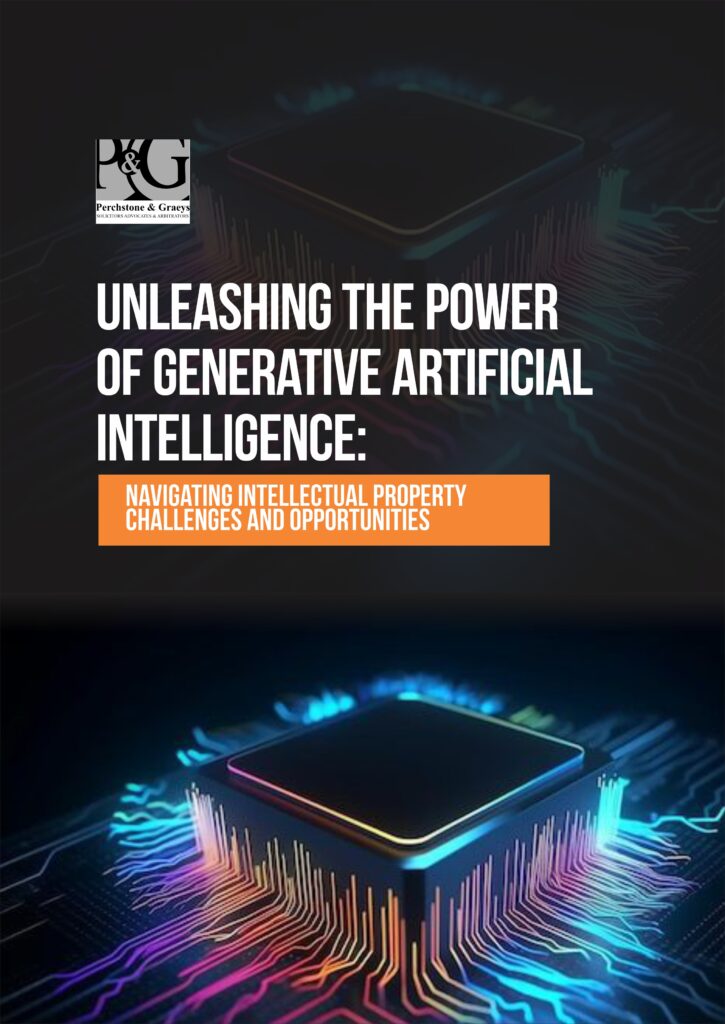Generative AI: Harnessing Innovation While Safeguarding Data Privacy

The last decade has ushered in a technological revolution driven by the rapid advancement of artificial intelligence (AI), especially in the realm of generative AI. Notable examples like ChatGPT, GitHub Copilot, and DALL-E have taken the world by storm, impressing users with their creative and analytical capabilities while stirring up significant debate. At the heart […]
Overview of the salient provisions of the nigeria data protection act, 2023

The Nigeria Data Protection Act, 2023 (“NDPA”) was signed into law on June 12, 2023, by
President Bola Ahmed Tinubu. Prior to the enactment of the Act, the Nigeria Data
Protection Regulation of 2019 regulated data protection in Nigeria.
Technological advancements have created an increased need for the security and protection
of personal data. The main objective of the Act is to safeguard the fundamental rights,
freedom and the interest of data subjects as guaranteed under the Constitution of the Federal
Republic of Nigeria, 1999
1
. The Act further establishes the Nigeria Data Protection
Commission
2 with functions geared towards effecting implementation, enforcement and
actualization of the objectives of the Act. This article presents an overview of the salient
provisions of the Act.
Revisiting the cybercrimes (prohibition, prevention, etc.) act 2015

Before the Cybercrimes (Prohibition, Prevention, etc.) Act 2015 (“the Act”) was enacted, Nigerian
law enforcement and prosecutors were hamstrung in prosecuting cybercrimes, due to
inherent limitations in ‘prior era’ legislation like the Economic and Financial Crime Commission
(Establishment) Act 2004. The EFCC Act could not cater for prevention of threats to
communication system and digital crimes. In the wake of increasing digitalization, the need
for responsive legislative initiatives to deter ingenious cybercrimes became painfully evident.
Hence, the Act. This article reviews the Act, and highlights areas of improvements through
legislative amendment.
The transformative potential of artificial intelligence (AI) in alternative dispute resolution

Alternative Dispute Resolution (ADR) methods, such as mediation and arbitration, have gained
significant traction as efficient and cost-effective alternatives to traditional litigation. Of course,
this is not without its pitfalls, some of which include cost and time. Nevertheless, with the rapid
advancements in technology, particularly in the field of Artificial Intelligence (AI), it has become
important to interrogate the cause and effect of AI in shaping and engaging the ADR framework
for effective resolution of disputes.
Navigating the Intersection of Data Protection and Privacy in the Age of Blockchain Technology

In the rapidly evolving digital landscape, the convergence of data protection and privacy faces heightened complexity, particularly with the rise of groundbreaking technologies such as blockchain. Originally conceived for cryptocurrencies like Bitcoin, blockchain has matured into a disruptive force, prompting organizations to adopt it for improved transparency, security, and efficiency. This article explores the intricate relationship between blockchain technology and data protection, emphasizing the challenges, privacy concerns associated with smart contracts, legal and regulatory compliance issues, and potential strategies to enhance privacy within the blockchain ecosystem.
The review begins with an overview of blockchain technology, emphasizing its decentralized and transparent nature, which, while advantageous, raises concerns about the privacy of sensitive information. The discussion delves into the challenges posed by smart contracts, self-executing codes embedded in blockchain transactions, and their operation on public blockchains. The transparency inherent in these contracts, coupled with pseudonymous identification and potential exposure of sensitive data, highlights the delicate balance needed between transparency and data protection.
A significant legal and regulatory compliance challenge is explored, focusing on the difficulties organizations face in aligning with data protection laws such as GDPR. The decentralized and immutable nature of blockchain poses obstacles in meeting regulatory requirements, especially concerning the “right to be forgotten.” Privacy-enhancing strategies are then introduced as potential solutions, including off-blockchain storage for sensitive data and the implementation of privacy-focused protocols like zero-knowledge proofs and homomorphic encryption.
The path forward involves collaborative efforts between regulatory bodies, industry experts, and blockchain developers to establish tailored frameworks that uphold the unique characteristics of blockchain while safeguarding individual privacy rights. Raising awareness and educating stakeholders on the importance of data protection and privacy in the decentralized landscape is deemed crucial, empowering individuals to understand and assert their rights.
In conclusion, the article underscores the inevitability of blockchain integration into the digital infrastructure and the unparalleled innovation it offers. However, it advocates for a vigilant approach, emphasizing the need to address challenges, employ privacy-enhancing strategies, and foster collaboration to ensure a harmonious coexistence of blockchain and data protection in the digital age.
Unveiling the concept of legitimate interest: A guide for controllers and processors in the Nigeria’s data landscape

The introduction of legitimate interest as a basis for processing data is a commendable imitative by the drafters of the Nigeria Data Protection Act, 2023. This provision offers flexibility for controllers and processors, enabling a pragmatic approach to address various situations where explicit consent may not be suitable.
However, striking a balance between meeting legitimate needs and respecting the rights of data subjects demands thoughtful consideration. This article delves into the significance of legitimate interest in sustaining an equilibrium between individual privacy and the interests of processors.
